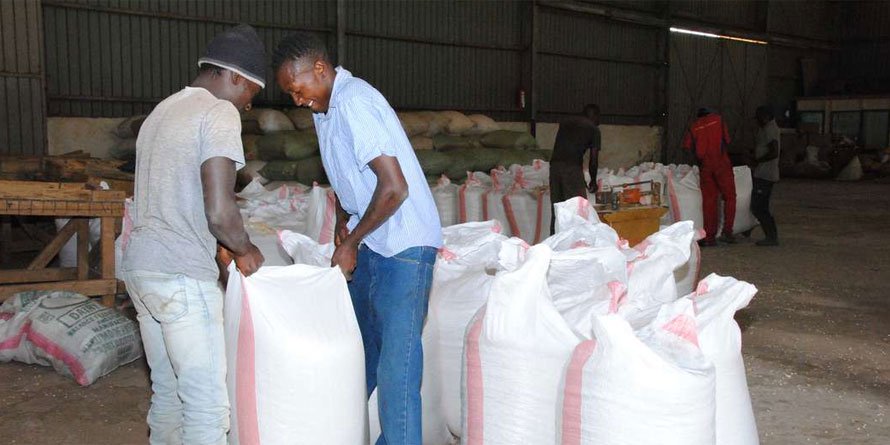The County government of Uasin Gishu plans to set up three maize milling plants to ease up marketing for farmers in the North Rift region who are currently selling their produce at between Sh800 to Sh1500 per 90kg of maize against last year’s Sh3200.
The three milling plants will be set up at a cost of two billion shillings.
“Maize farming has turned up to be a wasteful and unprofitable venture due to insufficient markets and as such we would like to support farmers through cooperatives,” said Uasin Gishu Governor Jackson Mandago.
The County is hitherto considered Kenya’s bread basket though maize production has been declining since 2016. In 2017, the county registered a decline in maize production from 4.4m bags in 2016 to 3.7m, a 25 per cent decrease attributed to infestation by the worm, head smut disease and the lethal necrosis disease according to statistics from the county’s department of agriculture.
The farmers have been selling their produce to the National and Produce Board in the recent past but challenges in payments for last season’s maize has been a major problem.
So far the government has only released Sh1.4bn to farmers for maize delivered to NCPB stores out of the total Sh3.5bn owed for over 3.8m bags sold to the cereals board last year.
In this, all farmers owed less than two million shillings have been paid according to the Ministry of Devolution.
Related content
Varsity launches solar drier that preserves meat, maize, vegetables and fruits for up to one year
Drought tolerant maize variety matures in three months ready for fresh green market
Low maize prices hurting farmers as harvesting season starts

Farmers packing maize in sacks in the past. (Photo: courtesy)
The Ministry of Agriculture has projected an increase in maize production this year from 35.2m bags produced last season to about 46m bags.
Kenya consumes at least three million bags of maize monthly according to the Kenya National Bureau of Statistics. The crop is used to make ugali, a dish made out of maize flour.
In 2017, the shortage of Kenya’s staple food maize, led to increase in maize flour prices from an average of Sh110 to Sh150 for a two kilogram packet forcing the government to subsidize the cost through imports.
In this, the government imported more than 100,000 tonnes of the produce to curb shortage thus allowing millers to sell a 2kg packet Sh90 each, a big relief to more than 70 per cent of Kenya’s estimated 47m people who depend on the crop as food and for commercial purposes.
Write comment (0 Comments)
















